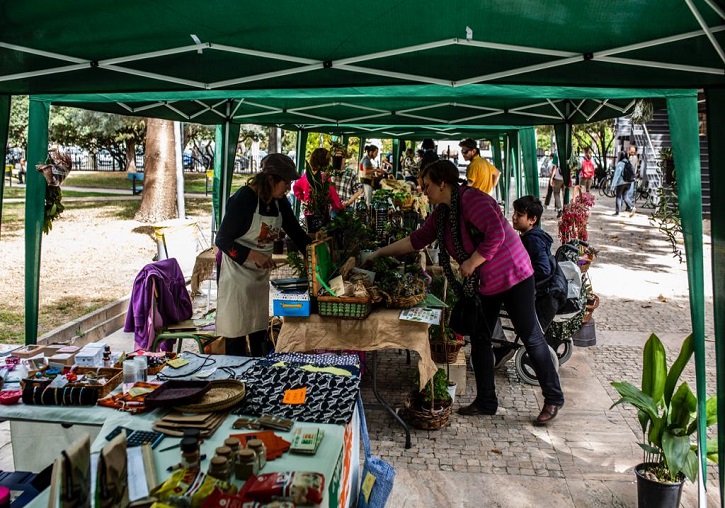
The Office of the Vice-Principal for Sustainability, Cooperation and Healthy Life closes the academic year with a firm commitment to the promotion of social responsibility at the heart of the Universitat de València. To this end, numerous actions have been taken, such as the recent training on strategic and sustainable public procurement.
On 21 and 22 June, staff from the UV contracting service, campus and faculty administrators, internal control staff, personnel from the Environmental area and other UV service staff were trained in strategic public procurement by professionals from the IDEAS cooperative, a benchmark organisation in the field.
The OCDE, in their Government at a Glance 2019 report, indicated that public procurement in Spain is equivalent to a percentage of GDP of around 10%, which also represents approximately 20% of its public spending, making it one of the pillars of sustainable development. In the university environment, strategic public procurement is understood as the processes by which university institutions seek to acquire services, supplies and labour that meets the social, environmental and ethical criteria. It is an essential tool for universities to act coherently and promote fairer, more responsible and sustainable production and consumption models.
The training addressed the existing regulations in this field, current case law, as well as various examples of good practice. With the aim of making the training session more practical, cases from the UV itself were also analysed, and the participants reflected on how to move forwards so that the UV increasingly considers social, environmental and ethical criteria in all its acquisitions.
The training ended with the 2nd Dialogue for Social Responsibility at the UV entitled ‘Public Procurement: a tool for developing a fairer, more responsible and sustainable university’. The following individuals participated in the Dialogue: Alberto Gil, manager of the University of Zaragoza; Ximena Lazo, Professor at the University of Alcalà de Henares and coordinator of the Research Group on Green Public Procurement; and David Comet, expert in responsible consumption of the Ideas Group and Technician in the area of Cooperation and Solidarity of the University of Cordoba. The three discussed the current legislation on responsible purchasing and the challenges and changes that are on the horizon at the European level. The experts also agreed on the great transformative capacity of public purchasing actions in the market and companies, and even on the economic, social and environmental profitability of responsible public purchasing.
The commitment of the Office of the Vice-Principal for Sustainability to greater sustainable awareness at the UV has been very present during the academic year through numerous actions promoting fair trade and responsible consumption, actions that have received increasing visibility and recognitions both inside and outside the institution. Among these actions are the development and dispersal of a more general guide, the 'Guide to fair trade and responsible consumption at the UV', which highlights possibilities for the university community to consume more responsibly on and off campus; the implementation of ecological and local food consumption options on campus, with the Agro-ecological Market on the Blasco Ibáñez campus, the Sustainable and Local Market on the Burjassot campus and the Cistella Responsable on the Tarongers Campus (a system for buying boxes of ecological vegetables served in the offices and libraries of the Campus), as well as various awareness-raising and training activities (talks, meetings, exhibitions, etc.).
In order to carry out these actions and initiatives, the Office of the Vice-Principal for Sustainability has created a giant network of entities within the UV itself, other vice-principal offices, chairs, etc., as well entities outside of the institution, such as the City Council of Valencia, local organic famers and various other social entities.















